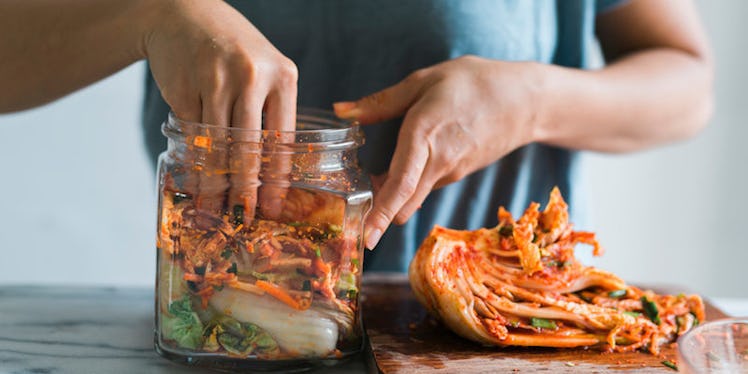
Why A Trendy Diet Is The Last Thing You Need If You're Trying To Shed Pounds
You wanna lose weight. You wanna eat cake. The struggle is real.
Diets are open to interpretation. They might sound really clear when an expert tells you what to do and how to track your progress, but how you perceive a diet really depends on your own understanding and the way your culture has influenced your outlook on food.
Tell a gal in India to go vegetarian, and she'll still have plenty of bean and vegetable options in her culture. Tell someone in America who has grown up on steak and potatoes to go vegetarian, and the only way that person could think about doing it is to eat only the potatoes. That's two entirely different approaches to the same information.
People also have foods they want to justify into their meal plans. The tendency is to make your meal plan like a puzzle to solve, identifying where the problem is (what you can't have that you crave) and finding the solution (a loophole).
Sticking to a plan is never just black and white. You negotiate with yourself on how you can accommodate your cravings, as long as you can find another way to be restrictive later.
So regardless of how straightforward a trendy diet is, how you interpret and apply the information depends entirely on you.
In any case, no matter what your personal experiments with diets have been, here are three ways your misinterpretation of information is messing up your long-term goals:
1. You wind up choosing processed foods over whole foods.
I remember a time when I thought that eating a synthetically-made, processed protein bar was better than having a carb-filled, natural banana. Because protein is good and carbs are bad, right? Right?
If you've been going to the grocery store and purchasing any products that have been altered in a way that seems suitable to your diet, you could be causing more harm than good.
You need to be clear about what has been added back into the food in order for it to taste good enough for you to eat. What gets added back in is usually a chemical that you don't want to be putting into your body.
The additives in processed foods themselves can alter your cravings, which can lead to even more. So, you're entering into your own vicious cycle. And these are what you'll find in the "ingredients" section of a food label, not in the section on calories, protein, sugars and fats.
There are tons of benefits to having whole foods, but the biggest one would be that when your body chemistry is balanced, your body tells you just how much it needs. And whole foods start tasting damn good. So good, you'll wonder why those cookies you used to love suddenly taste overwhelmingly sweet, like you're shoving spoonfuls of sugar into your mouth.
So remember, whole foods trump processed foods, regardless of whether or not the chemical makeup is aligned with your diet plans.
2. You restrict yourself so you can save your calories for later.
If you're the type of person who will avoid eating all day so you can have five glasses of wine later and stick to your calorie intake, then you're doing something wrong.
Calorie counting or any kind of point system with food is intended to get you to choose healthier, low-calorie options (which are in whole foods). But instead, people forget to explore other options and food possibilities they could have. Instead, they choose to take what they have already been eating, and they chisel it down into a restrictive version of the foods they are familiar with.
Get out there and start exploring other foods you can be eating. Steamed broccoli with bland chicken breast that makes you want to cry from lack of flavor is not the answer. Experimenting with foods you're not used to having and foods from other cultures is.
If you want to make a lasting lifestyle change with food, you have to start figuring out what you like by exploring. Stop figuring out how to cut back on the information you already know.
3. You choose to do a crazy diet plan without thinking the actions through in the long term.
What will you do once you're off that juice cleanse? What will you do when you finally lose all of the weight while on your diet plan, and you realize you still have to keep eating the same way just to maintain it? What is your plan after the diet plan?
Diet plans are meant as tools for you to understand nutritional information. They're not set in stone, they were not created specifically for your unique body and they don't know how to ask you if you even like any of the foods on the plan. They're just a tool for you to figure out how you want to live your life with food, which means you're in the driver's seat of your food lifestyle.
Don't let your misinterpretation of diets mess up your goals. You know the answer. You got this.